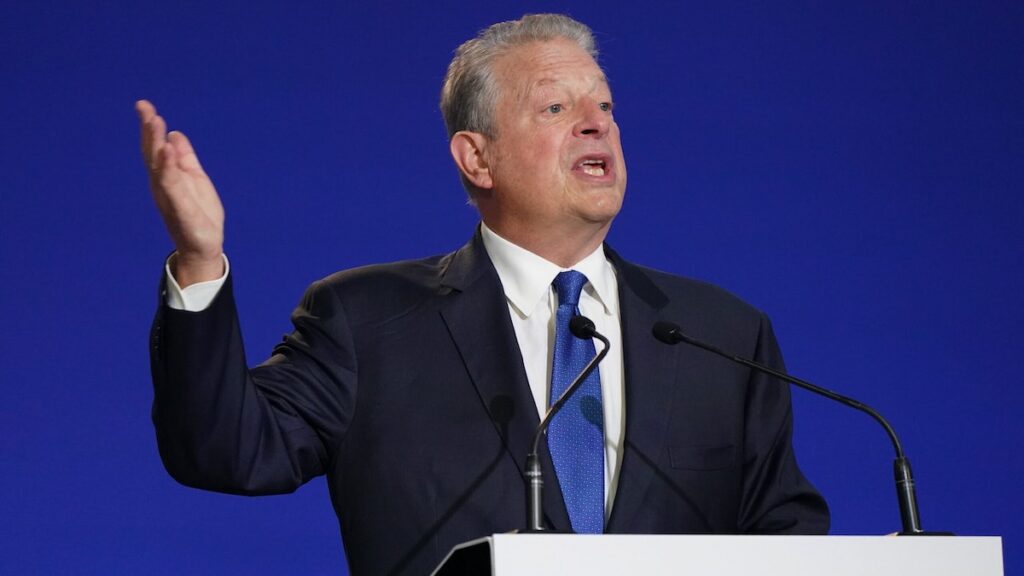In a recent CNN interview, Al Gore, known for his dramatic climate change narratives, predicted a staggering one billion ‘climate refugees’ unless his and the political Left’s climate agenda is adopted. Gore, leveraging his platform to promote a dire view of the future, emphasized the need for immediate action against greenhouse gases. He touted solar and wind energy as the only solutions, conspicuously ignoring nuclear energy, a significant omission given its potential as a clean energy source.
Gore’s approach to the climate conversation, as usual, was to paint a catastrophic picture, warning of megastorms, floods, droughts, and an increase in tropical diseases. His claims, designed to instill urgency, often reflect a one-sided view that disregards the complexities of climate science and the global economy.
His focus on renewable energy and efficiency, while commendable, sidesteps the practical challenges and economic implications of a rapid shift away from fossil fuels. Gore’s narrative pushes a political agenda, targeting the fossil fuel industry and calling for an end to its influence, yet it lacks a balanced consideration of all available clean energy options, including nuclear power.
Gore’s assertion about the potential for one billion climate refugees is an extension of this alarmist rhetoric. It’s a figure intended to shock and mobilize public opinion, but it raises questions about the feasibility of his proposed solutions and the realistic impacts of climate change. This interview is another example of Gore’s tendency to use extreme scenarios to advocate for specific political actions, often at the expense of a more nuanced and comprehensive discussion on climate change.



